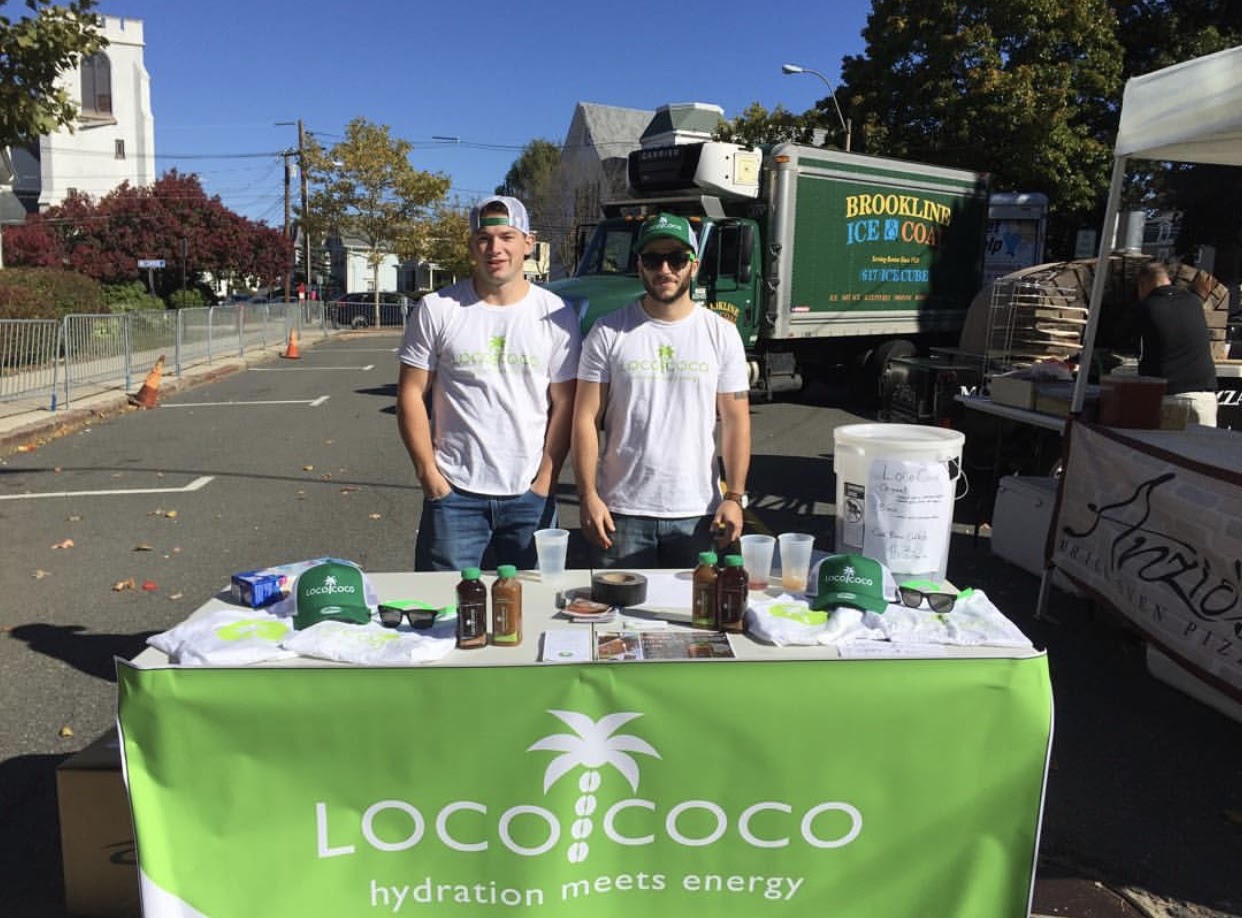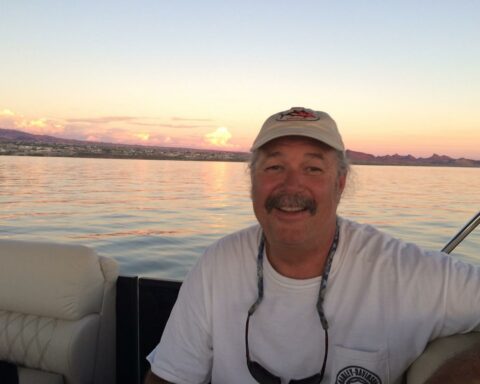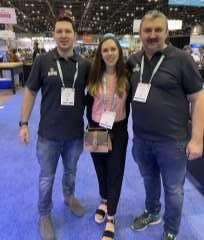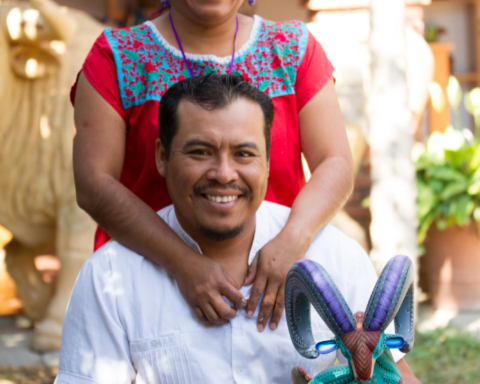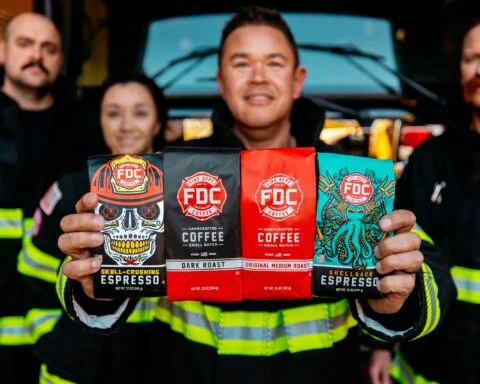In 2015 my longtime childhood friend Dan texted me (Sean) around 2 am simply asking “Hey, you want to start a coffee company?” Although completely out of the blue and without any context, I immediately replied yes. This is pretty standard for me. Whether it was to run another sprint or to have another beer, Dan has always had success over the years convincing me to do things I have no business doing. Thus begins the roller coaster ride of our company Loco Coffee, a better for you cold brew mixed with coconut water.
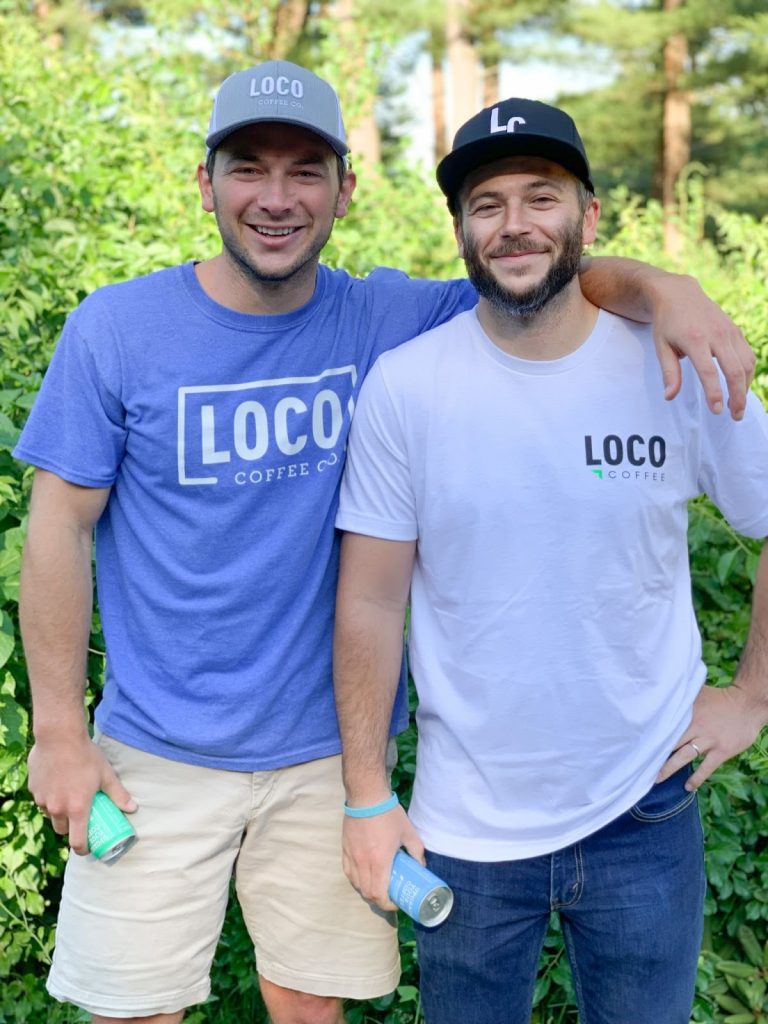
We both graduated from separate colleges in 2014. Well, I think I did anyway. I never got a diploma, but I was on the class list for the graduation ceremony that I skipped to go to the gym like a real asshole. We dabbled in college sports, but it didn’t take much time for us to realize we weren’t going to be professional athletes like we had planned at 8 years old.
Once we graduated we entered the world of 9-5 office jobs, Dan was in finance and I was a graphic designer. To no one’s surprise, sitting still at a desk for 8-10 hours a day bored us to death and had us questioning our lives. We started drinking endless amounts of coffee just to get through the day, but the coffee options were terrible and made us feel like shit. After searching for some sort of coffee that wasn’t so dehydrating or filled with sugar and calories, we decided to take matters into our own hands.
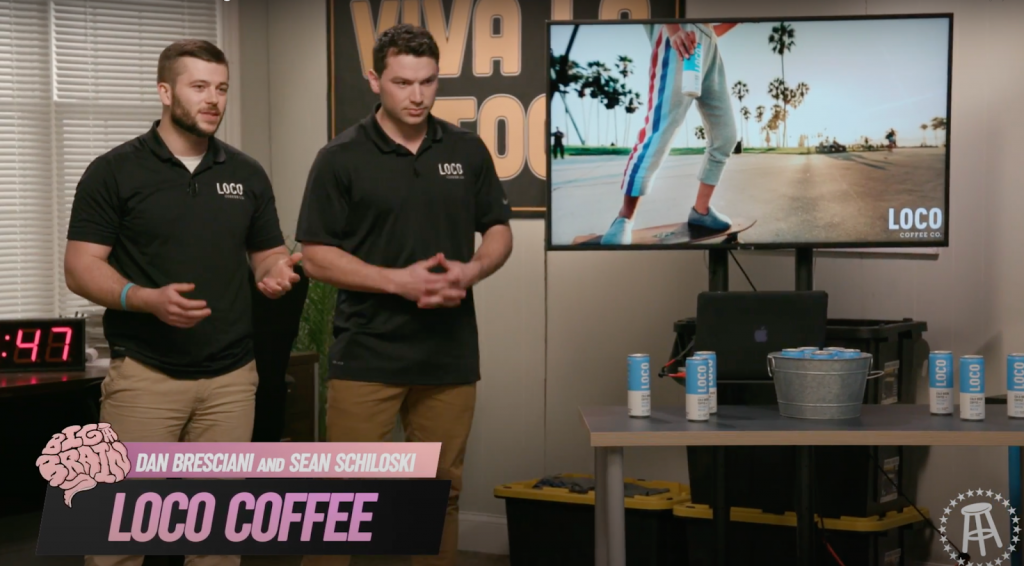
We’re not health experts or coffee connoisseurs, but we started experimenting with everything under the sun just to come up with a drink that we wanted to drink ourselves. We kind of stumbled into mixing coconut water into cold brew coffee one day, and we immediately knew that’s what we were looking for. For three years we would hand fill bottles overnight after we got out of our full-time jobs, just to sample at gyms and sell in a handful of stores. We were losing money hand over fist, but people loved our coffee and we were convinced if we worked hard enough we could make it work.
In 2018 we were able to land a co-manufacturing company to produce our coffee in 12oz cans, and we knew then it was time to get serious. Although everyone close to us probably thought we were out of our minds, we quit our jobs and went all in. Our “paychecks” depended on what bills were due and what was left in the bank account. Many weeks that meant we didn’t get paid at all, and I think by the end of the year we had paid ourselves somewhere around $22,000 each. I’ve never eaten so much pasta with butter in my life, and I still make fun of Dan for his gourmet dinners of maple syrup sandwiches.
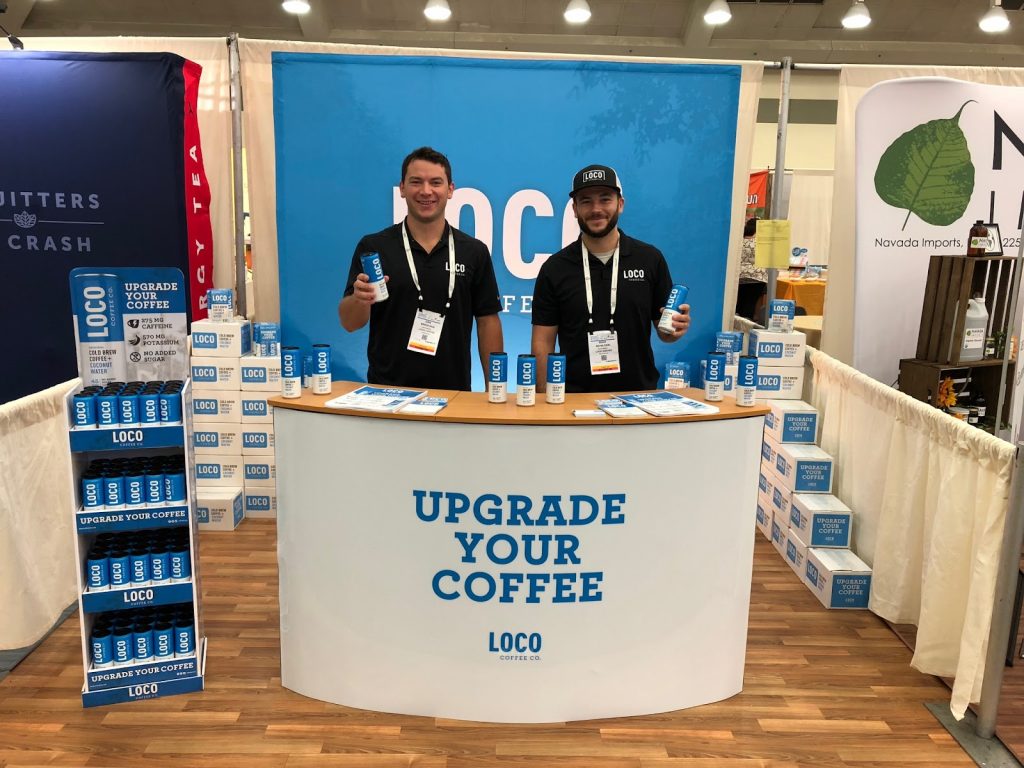
Through 2018 and 2019 we were getting a lot of traction and found success getting our coffee into over 500 stores around the Northeast. By January of 2020, we had raised some money, hired a team of full-time employees, a couple of agencies to grow our digital presence, and made big plans to rapidly grow into grocery stores across the country. Then two months later the world shut down from COVID. Our business almost exclusively relied on our grocery store partners, and the only items being distributed and purchased at those stores were the essential items everyone was stockpiling for quarantine. Like everyone else at that time, we had no idea what was going to happen or what the right move was. Some of our full-time employees’ whole job description was to go into stores every day and support our product on the shelves, but that was no longer possible.
We all realized we were in a strange time, and we were rather fortunate to still have jobs when many others didn’t. We were struggling to figure out what to do, and it felt uncomfortable to strategize ways to take advantage of what was happening to grow sales. After a few long team meetings, we started shifting our focus to what we had to offer as a company, and more importantly who we could help in the current situation.
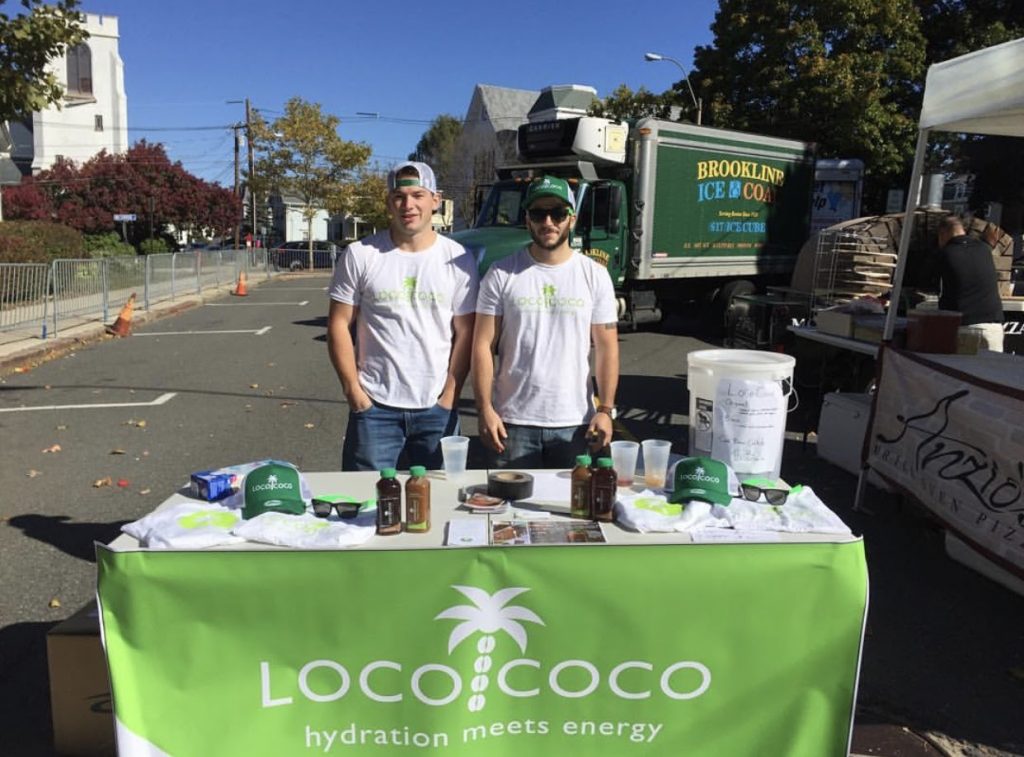
Being local to Boston, we were very close to many hospitals being overrun with patients, so supporting those health care workers became our focus. After dropping off cases of coffee at a hospital near our office and making a post on Instagram calling any health care worker to send us a DM for free coffee, our whole team started driving around to every single hospital in the area delivering free cases of Loco. Within a month we had donated 2,500 cans of Loco to local health care workers, and although that might not be much on a big scale, it’s one of the things I’m most proud of as a small business.
However, being a retail-focused company was no longer an option. We had plans to triple the number of stores we were in by 2021, and that was simply impossible to do. That plan was lit on fire and with it went our entire business model. Our warehouse was stocked with coffee, but we had no one to sell it to. Most consumer product goods companies start selling their products online and then move into retail stores, and we were doing it completely backward.
Selling online was our immediate future, so we went into it with the mentality of the Kool-Aid man running through a wall. While successful and promising, the strategy wasn’t sustainable long term and at the rate, we were going we wouldn’t be able to afford the increasing demand. Dan and I took a step back and made the decision to cut all of our unnecessary spendings.
Anything that didn’t bring back an immediate return needed to go. We had to slow down and take a breath. We realized that the only way to survive as a company was to use whatever capital we had left (and with some extra injections from existing Advisors/Investors) to focus completely on making our products better, introduce new products (like our new Vanilla Honey Oatmilk), and delay our growth. Instead of our projected 5x growth, we doubled our growth from the previous year. Although incredibly stressful, it was the best decision we ever made.
When you’re a small company seeing success and growing quickly, it becomes pretty easy to keep your foot on the gas without realizing you might be skipping some crucial steps in developing your business. We often relate building a business to building a house. Without properly building the foundation that the house sits on, the house will eventually collapse. We made the mistake of building the foundation and a two-story house simultaneously, which is pretty obviously a recipe for disaster. With social media being in everyone’s hands at all times, it has cut out essentially all obstacles to connecting directly with consumers.
This is great for acquiring new customers and staying engaged with existing customers, but it’s also an extremely top-heavy approach to developing your business. If you stop promoting your business on social platforms for a month and your business fails, you might have skipped an important step in building your foundation.
While we are ways away from calling ourselves a successful company, we’ve been fortunate to make a lot of mistakes at a small scale to learn from as we grow. One thing I remind myself of all the time is that there is no real blueprint to growing a business. No secret formula being sold online can really be applied to everyone.
If someone is willing to offer advice, take it every time. You can ask two successful people to give advice on a certain problem, and it’s very common to hear that they give two contradicting solutions. This is not a waste of time, it’s just validation that no one can truly just show you what to do. After all, the most successful companies never had a roadmap, they built the road along the way.
- FDC – Giejo Magazine Article - July 29, 2023
- MoriMa Tea the – Chinese tea culture - April 26, 2023
- Missionary Position – Least Likely To Bring You To Climax - April 7, 2023

